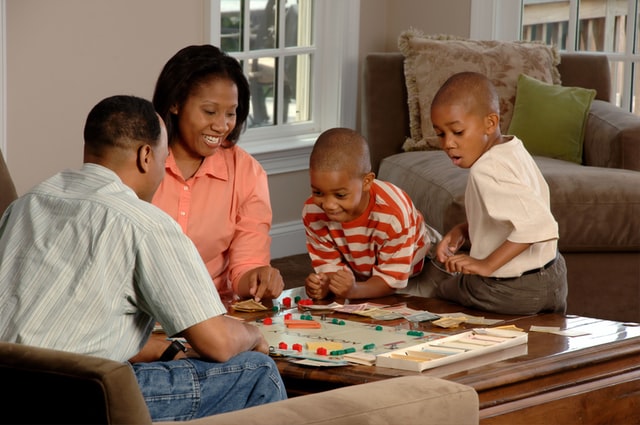4 Ways Parents can help Students Master Social Emotional Learning
by Amber Gunnels, on Mar 4, 2021 4:51:44 PM
Social emotional learning is a skill that everyone should learn to master. Parents can model this skill in order for it to be developed within their own children. So how can social emotional modeling be done? Some of the top ways parents can help their children master social emotional learning are by demonstrating an ability to have: open ears, open communication, an open mind, and collaboration.
1. Open Ears
The ability to listen to what is being said without negative judgement.
Listening to Teachers. Parents may think they know their children better than anyone else; but teachers know these children pretty well, too. Teachers see children five days out of the school week, for seven to eight hours throughout each of those days. In addition, some teachers may see students during the weekend due to extracurricular activities. Teachers see a lot of progress and struggles students may have with their behavior, skills, and abilities; which can be communicated to parents-- if they are willing to listen with open ears.
Listening to Children. Children will talk if they know someone will listen. Parents can be an open ear for their children by listening to them without judgement. Depending on a child’s age and experiences, a child may need someone to guide or answer questions they may have about life situations. For instance, a child may need someone to talk to if they just had an argument with their best friend. When parents have an open ear, it allows children to become more socially & self aware and builds lasting relationship skills.
2. Open Communication
The ability to talk to others with trust, understanding, and honesty.
Open Communication with Teachers. When issues are happening at home, it is important to communicate the issues with teachers. Children bring emotions, behaviors, and other symptoms from home into the classroom when issues occur. It’s important to keep the teacher informed, in case some of the symptoms are reflected at school through behaviors towards teachers and classmates. Open communication will allow the teacher to better understand situations, such as: why a child may not complete school work; why a child may lash out at teachers and peers; or why a child may daydream in class.
Open Communication with Children. It is important for parents to understand the importance of communicating with their children. Through open communication, children have an opportunity to talk and feel as if they can trust the person who is listening to them. As children grow older, they strive to be better understood by others. Parents who have open communication with their children, leave a lasting mark for their children to learn honest communication skills in order to be greatly understood.
3. An Open Mind
The ability to think without prejudice and with consideration of new ideas.
Open Mindedness with Teachers. Teachers have the knowledge and ability to catch developmental delays and disabilities early-on in a child’s academic journey. As a teacher, it is their duty to share developmental concerns with parents. Sometimes, it can be hard for parents to keep an open mind when teachers share certain developmental concerns. As a parent, it is important to stay open minded about what the teacher has observed and has voiced as a concern. With open mindedness, parents may be able to realize and understand how to meet the needs of their child within the classroom setting and at home, to better prepare the child for future success.
Open Mindedness with Children. Children have the ability to share ideas and needs with adults, if adults are willing to consider these situations with an open mind. If a child is struggling in school, it is important for parents to talk with the child to better understand the issue, and give the child an opportunity to voice their concerns and ideas on how to fix the issue. When a child sees an adult communicating with an open outlook on situations, it models an open minded approach that children can use to deal with any situations that may occur in their life.
4. Collaboration
The ability to work with others towards a goal.
Collaboration with Teachers. It is extremely important for parents and teachers to work together for the benefit of a child’s academic success. When teachers and parents work together, it not only helps the child academically, but also creates better parent-teacher and student-teacher relationships. For example, if a parent dislikes a teacher and has no desire to work with the teacher for their child’s success, that leaves the child at an academic disadvantage building a strong relationship to promote academic progress. Yet if a parent collaborates with the teacher to benefit the child’s learning outcomes, the more likely the child will want to build a stronger relationship for support in their academic accomplishments.
Collaboration with Children. When parents collaborate with their children they model the importance of collaborating with others. This can be done through helping children complete homework assignments, projects, and having parent-teacher-student communication on a daily or weekly basis. When children see that adults are dedicated and collaborating in their learning progress, they are more likely to care and strive for excellence in their goals and achievements.
* Photo by National Cancer Institute on Unsplash




